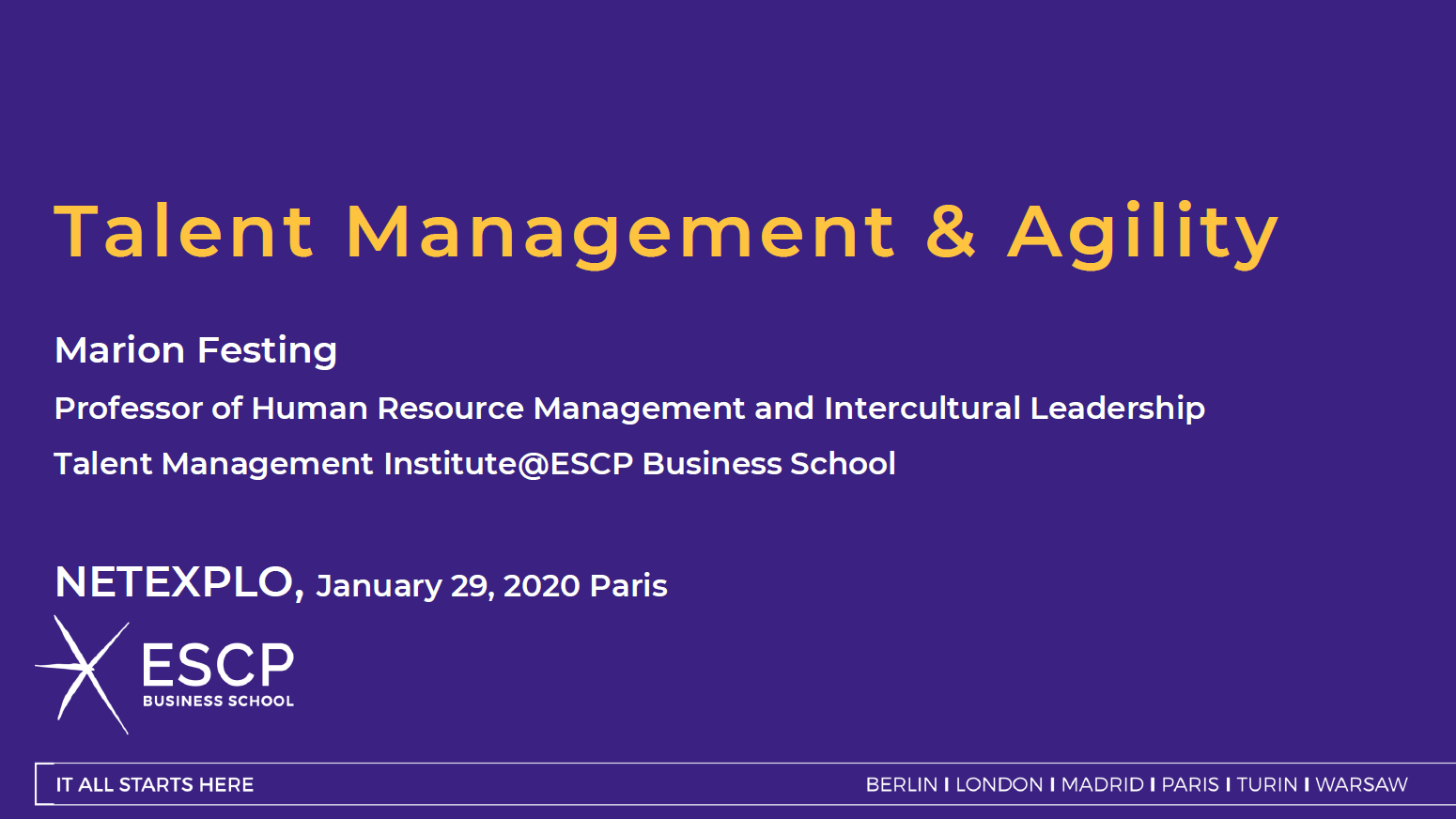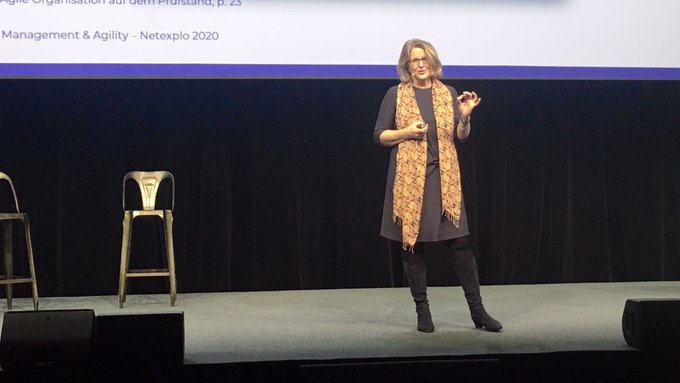
Prof. Dr. Marion Festing, Chair of Human Resource Management and Intercultural Leadership and Academic Director of the Talent Management Institute participated in the 3rd edition of the NETEXPLO Talent Forum on January 28-29 in Paris.
The conference is part of the Digital Transformation Facilitator Certificate by NETEXPLO & ESCP Business School with several hundreds of participants. The two-day event consisted of keynote speaches and insights, such as the “Talent Foresight 2030” study conducted by ESCP Business School and NETEXPLO, investigating what will talent mean by 2030 in the digital world, based on dozens of interviews with digital experts and hundreds of managers from several continents. This is complemented by excercises, and workshops addressing macro-skills such as agility, anticipation, team spirit and ecosystems, so that participants enrolled in this certificate are better equiped to help their organisations, understanding the digital transformation and acting as facilitators and drivers in this change.
From ESCP Business School, next to Marion Festing, also Frank Bournois, Emanuelle Léon and Cécile DEJOUX took part in this year’s event, among other great speakers such as Alexandre Tissot (NETEXPLO), Florent Menegaux (Chairman Groupe Michelin), Bruno Aïdan (Chief Data Officer Air Liquide), Danielle Winandy (Head of Risk Innovation Office BNP Paribas), Laëtitia Gazel Anthoine (CEO Herow).

In her keynote speach on “Talent Management & Agility”, Marion gave an introduction to the topic of agility, defined as “enterprise’s ability to quickly respond and adapt in response to continuous and unpredictable changes of competitive market environments” (Sherehiy & Karwowski 2014, p. 466), agile values and principles (e.g. the law of small teams, the law of the customer and the law of the network), the agile onion (the necessity to change the mindset and not just tools and methods in order to become truly agile), talked about tensions and leadership mistakes of agile organisations (based on the Hays HR report 2018), and shared own findings of a research project on agile talents, recruiting agile talents and developing agile talents and competencies (Harsch & Festing, 2020). Recommendations for organisations on their way to become more agile encompass focusing on “autonomy, flexibility, agility” in employer branding, including managers and peers in recruiting decisions (e.g. peer recruiting), apply innovative selection processes (e.g. rehearsals, trial work etc.), implementing self-nomination in talent selection and focusing on self-responsibility in talent development, creating individualised horizontal career opportunities (not just vertical ones) and emphasising open learning and peer-learning formats such as employee academies and bar camps.

For further information, the full publication “Dynamic talent management capabilities and organizational agility—A qualitative exploration” by TMI members Katharina Harsch & Marion Festing can be found here.
